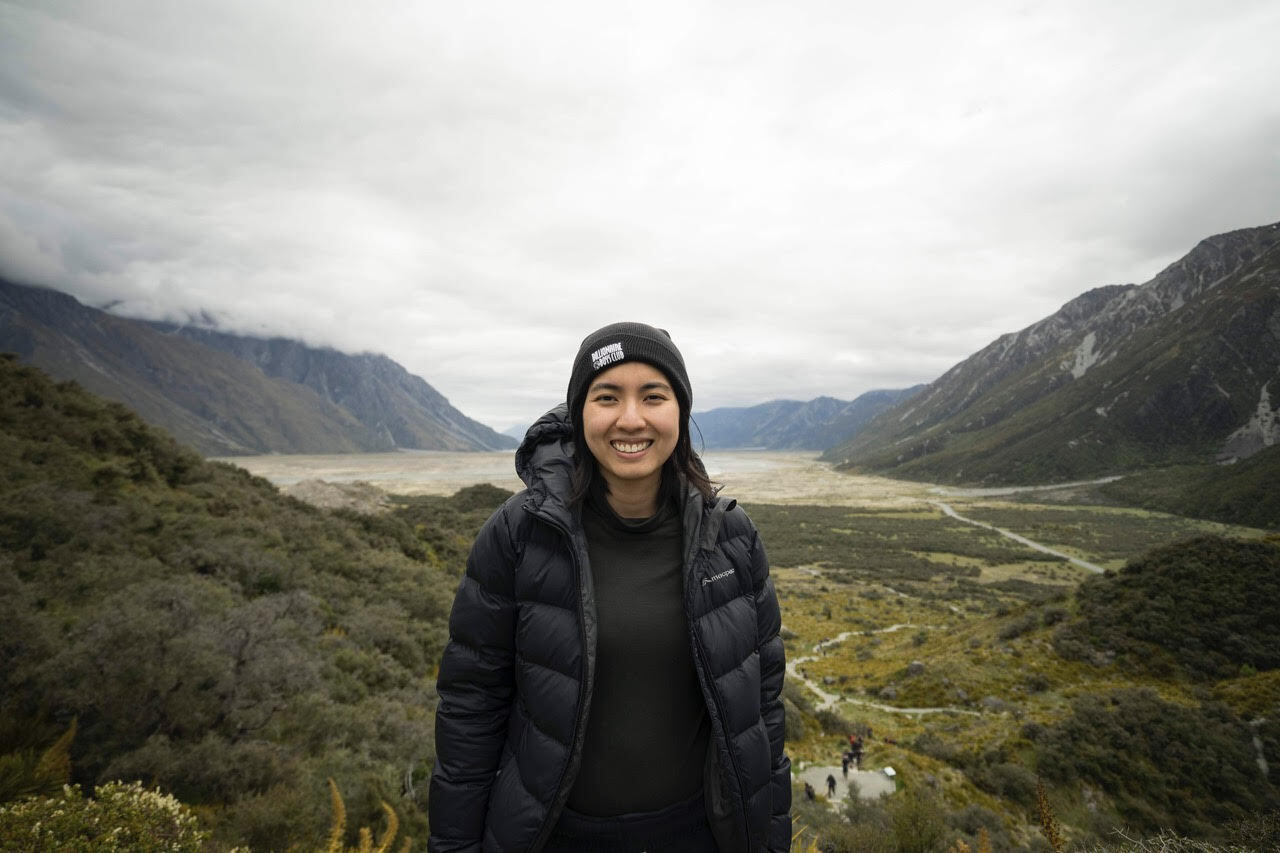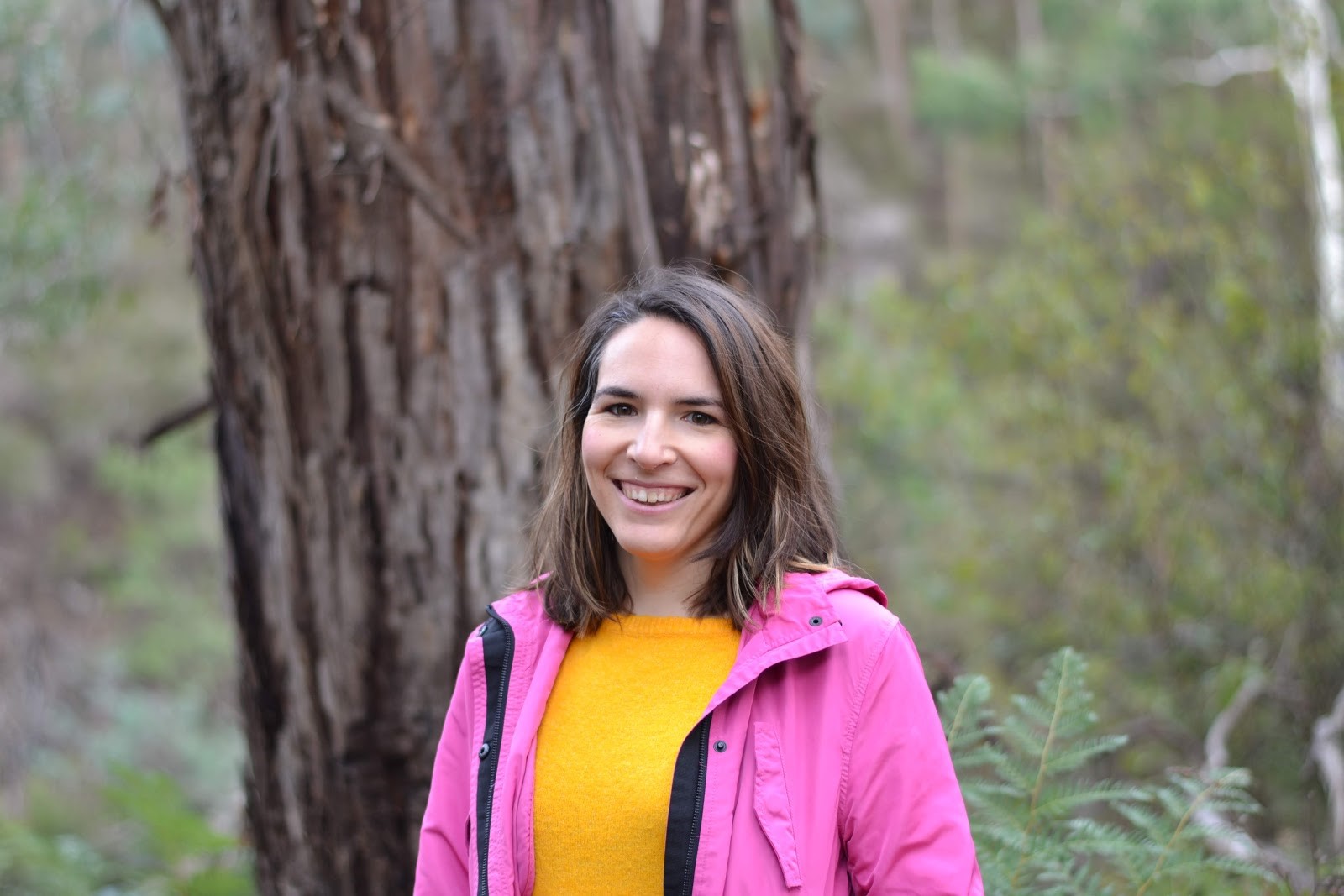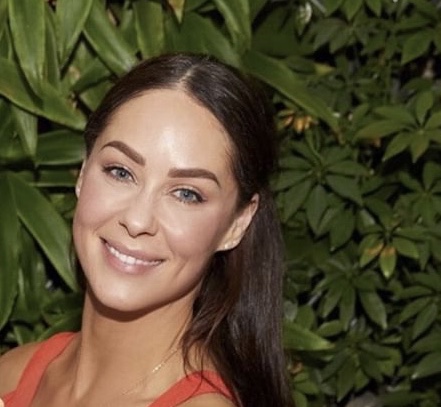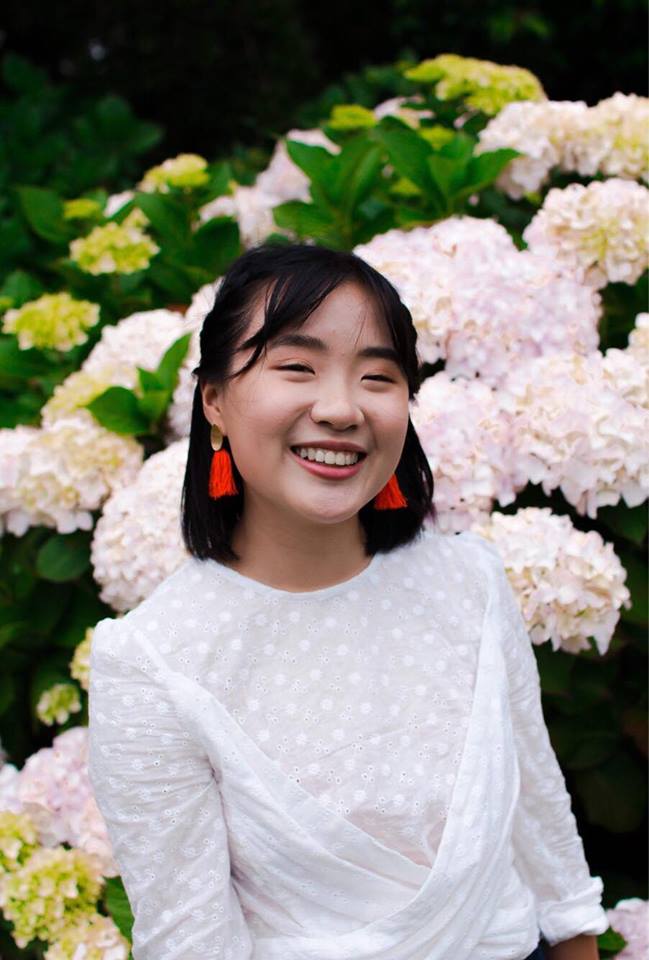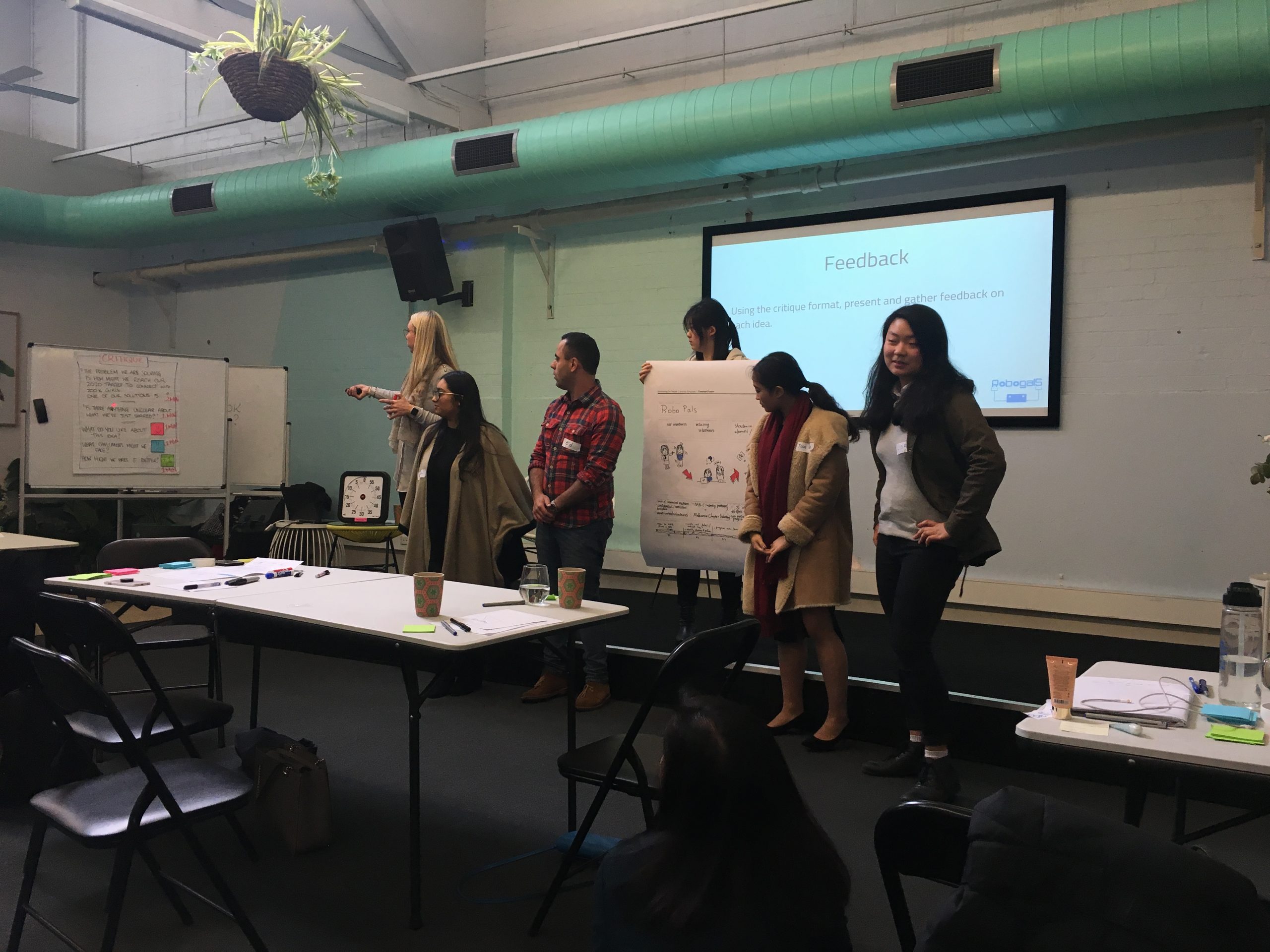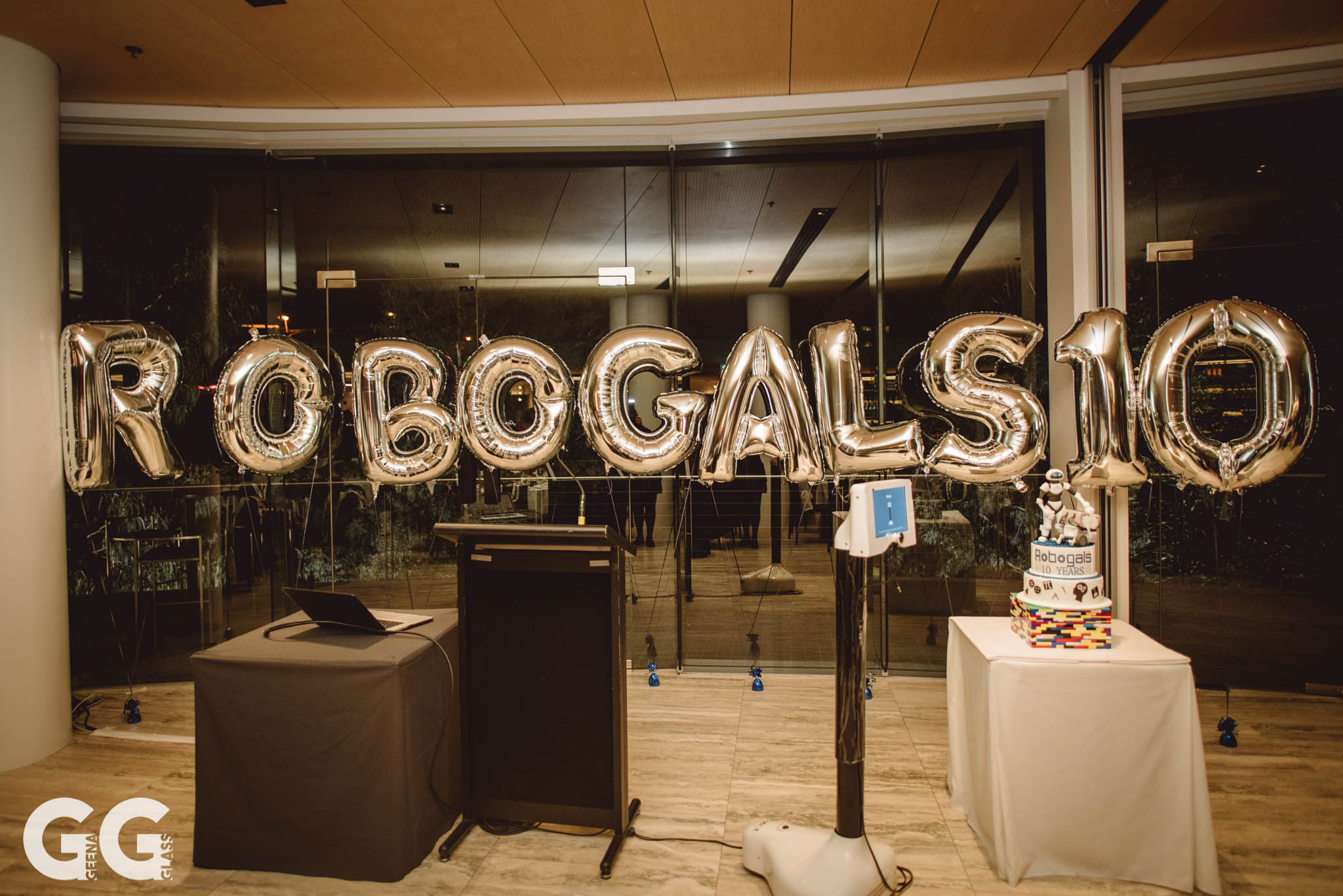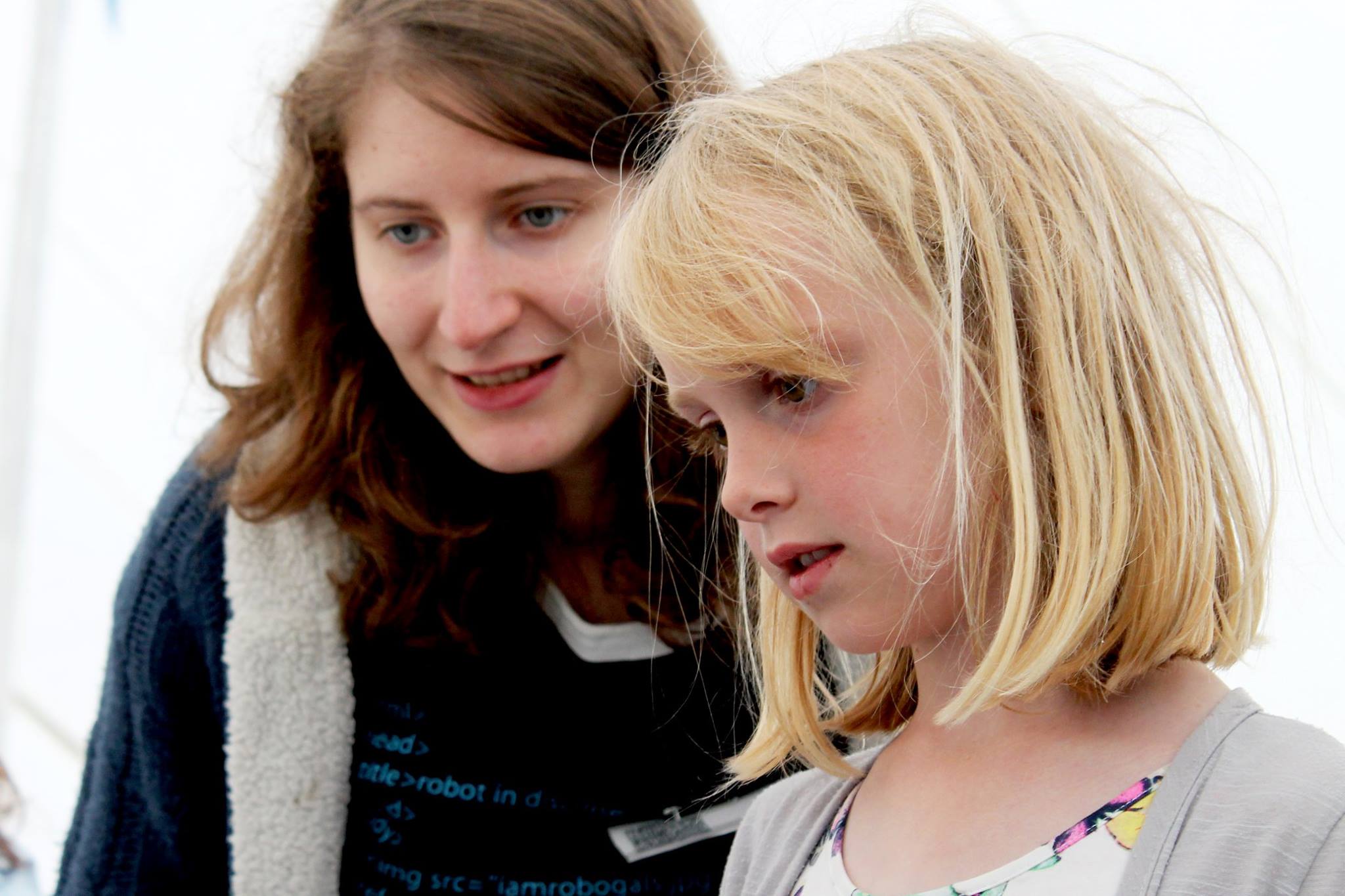By Imogen Feder In late 2019, Robogals sat down with Alexa Nguyen, a Software Developer at SEEK, to discuss the importance of encouraging girls to try coding and programming at a young age. Pathway to Coding Alexa first started a Science degree in 2013 at the University of Adelaide. Like a lot of undergraduates, she simply just didn’t know what she wanted to do. “Perhaps”, she said, “if I had been exposed to Robogals earlier, I might have chosen to pursue software engineering or computer science straight out of high school.” After finishing her science degree, she chose to start a Maths and Computer Science degree. At this point, she was just aiming to get good enough grades to transfer into dentistry, as her parents wanted. However, to her surprise, her enjoyment in taking an introductory programming course prompted her to change into an advanced stream of a computer science degree. Alexa’s Journey with Robogals Alexa first started going to Robogals social events for the free pizza and to meet people. “It just sounded a bit scary and intimidating!”, she told us, laughing. Her love for teaching kids how to code and program robots was discovered when she helped run a Robogals workshop in Mount Gambier. “When I was in school, I was never encouraged to try coding! If I were in their position, I’d be really happy to be shown how to code and program these robots and do these cool things!” The five-day rural trip took place in 2017, and Robogals Adelaide visited five different schools. “I really cherished the opportunity to help out some kids who had never been exposed to STEM!” Despite it being her first workshop, Alexa found it all really easy to pick up, thanks to the help of a few experienced volunteers. While on the trip, Alexa and the other volunteers had the perfect opportunity for light painting against the backdrop of stars. The lack of light pollution had stunning results, with the volunteers only needing the light from their phones to illuminate their surroundings. In 2019, Alexa became the treasurer for the University of Adelaide Chapter and helped bring 39 workshops to 1058 students throughout the year. Into the Future According to Alexa, a choice to study STEM at university isn’t enough. “We need to help foster a sense of belonging for women in tech so that they remain engaged in the community!” she said. “That’s why I loved being involved with Robogals and attending the annual SINE conference where I could connect with like-minded people who share a common goal.” Now having completed her studies, she hopes there will be further opportunities for her to attend Robogals workshops in the future. If you want to share your experiences with Robogals or passion for STEM with us – please contact us at [email protected]
New Territory – Elspeth De Fanti shares her career in Forestry
By Imogen Feder Elspeth De Fanti A message lost in communication led forestry student Elsepth De Fanti to remote Tasmania, where she hiked through incredibly dense bush and worked on field sites for 10 weeks. At the time, she didn’t realise that she was almost overlooked for the forestry placement, which was “90% outdoors and physically demanding”, as the employer had requested the position be filled by a male student. This request was never received by the interview panel and so Elspeth, and another female student, were successful applicants for the work. “I think they felt that their teams were very blokey and that it was really hard work,” the now 34 year-old said. However, Elspeth believes that she and her colleague proved that the request should not have been made. “Quite clearly we could fulfill the role and excel in it! I felt it was a real triumph in terms of showing them they had made a real mistake in making that request.” Elspeth in Tasmania completing her Forestry work experience Now 10 years into her career, Elspeth has tested the boundaries of the traditionally male-dominated field of forestry. “Operational forestry is still very much a blokes world and it was definitely in my face when I entered the work environment,” she said. Elspeth firmly believes that the future of forestry is changing, and as a science pathway that remains largely undiscovered, it holds enormous potential. “Forestry is broad and all encompassing and it can’t be easily defined. It’s largely the science and practice of planting, managing, and caring for forests, it’s just so diverse.” After completing a Bachelor of Forestry/Bachelor of Science from the University of Melbourne in 2007 (similar to the current Forest Ecosystem Specialisation in the Ecosystem Science Major in the Bachelor of Science), Elspeth was given an opportunity to work with the Victorian state government to manage invasive species across Victoria. She recalls that State Prohibited Weed, known as Mexican feather grass, was mistakenly sold from a large hardware chain across Melbourne as part of a Mother’s Day promotion. “It was treated as a huge biosecurity threat so we had to put together a whole operation to retrieve every plant that was sold from people’s gardens. Luckily we did have success in retrieving a majority of them by communicating with the public. It was a very exciting job!” Following on from this, Elspeth was invited by the Portugese government to travel to the Azores and present on Australia’s approach to biosecurity threats. Elspeth giving a presentation on Mexican Feather Grass in the Azores, Portugal Elspeth went on to run a BushTender program, funding farmers to rehabilitate parts of their property and to protect native vegetation on their land. She has also helped plan for Melbourne’s growth areas, such as Weribee, Officer and Cranbourne. In this work, she worked to protect key conservation areas and key species such as Eastern Barred Bandicoots and Growling Grass Frogs. She says that a career highlight was travelling with an Australian team of firefighters to help Canada with their wildfire management. “Canada struggles with their wildfires and they see Australian firefighters as having an exemplary skill set. So it was fantastic to go across as a liaison officer assistant to help with the logistics of 100 Australian firefighters.” Elspeth in British Columbia “I think that it is a really exciting time to enter into Forestry because there is a lot of international work out there! I have a friend who is being sought after from Peru to Papua New Guinea to everywhere, just because the skills they have are so few and far between.” Elspeth has also enjoyed the potential for her career to cross over into a communications capacity. While working on the Glenelg Ark Fox Project in Dartmoor, Elspeth developed strategies and dabbled in the area of marketing. “I was pleased that while I was working in a science environment field, I could still apply my creativity which I loved!” she said. Elspeth completing her Chainsaw Accreditation Course at Creswick For those interested in similar pathways, Elspeth recommends gaining skills in Geographic Information Systems (GIS) and remote sensing, something she says is a “big opportunity area for the future.” GIS uses the science of geographical intelligence to analyse multiple, complex datasets layered over defined territories, revealing hidden patterns and trends. Overall, Elspeth believes it is a great time to be entering this field of science. Current opportunities and relevant links for women considering a career in Forestry: https://www.ffm.vic.gov.au/who-we-are/women-in-fire-and-emergency-leadership https://www.timberbiz.com.au/commonwealth-forestry-association-young-forester-awards-open/ https://www.forestry.org.au/about-ifa/84-forestry-scholarship-fund-fsf https://www.forestry.org.au/about-forestry/future-foresters-initiative/ https://www.cifor.org/gender/ If you know of someone who may want to share their experiences and love of science – please contact us at [email protected]
Robogals takes off in Nairobi
Robogals University of Nairobi President Catherine Akinyi Odera Catherine Akinyi Odera is the inaugural President of the newly established University of Nairobi Robogals chapter in Kenya. She is currently awaiting graduation from her course of Geospatial Engineering. What inspired you to start the University of Nairobi Chapter of Robogals? We found out there were only a few women studying engineering in Kenya. For example, at the University of Nairobi, we have only six females in my Geospatial Engineering class of 29. We thought that it would be a good idea to start encouraging girls at a young age to take up engineering and so they are in a better position to make their decision when they get to university. What do you think is the biggest barrier preventing women entering engineering in Nairobi? In Nairobi, before the introduction of gender equality in STEM-related fields, engineering was a male-dominated field. As a result, when we get to high school or university, we think engineering is supposed to be for the men. Engineering often deals with a more hands-on approach and women tend to shy away from this. What has your experience starting the Robogals Chapter been like? When we launched the Chapter at Nairobi University last month, we had people from various organisations, including the UN. A problem we are having as a Chapter is funding and as a result, we were concerned about our ability to undertake activities at schools. However, we have started to create partnerships with other organisations that have the same vision as Robogals. For example, we recently just formed a partnership with Ubunifu, which is a school that teaches programming. We also have partnerships with organisations that mentor girls on social issues. We don’t have any robots at the moment, but we are thinking of buying our own kits of equipment, such as Lego. We already have a new team on board, and currently I am inducting them and teaching them how to undertake their roles. We have around 60 members at the moment! At the start, it was thought that we were a female-only organisation but after a little explaining we now have male members as well! It’s a young club and it’s just starting up but is also very exciting because other universities are asking us how to start their own chapters. Robogals University of Nairobi Launch Event When did you first realise that STEM was what you wanted to study and do? At first, I did not want to undertake anything to do with engineering, I wanted to become a doctor! But by my fourth year in high school I became more interested in technology, hence I was given the opportunity to take Geospatial Engineering. Hopefully, more girls are given the chance to try maths and science so that we have more women in technical courses in the future! The University of Nairobi joins the University of Cape Town as the first two African universities with a Robogals Chapter. Catherine’s comments allude to the importance of addressing misconceptions that combatting gender equality is a female-led and driven endeavour. Men also play a large role in encouraging female STEM participation If you’re interested in sharing your Robogals story or starting a new Robogals chapter at your university, we encourage you to contact us at [email protected]
“Children from a young age should be exposed to engineering in a fun and creative manner”: Emma Fox on challenging stereotypes and bridging the gender gap in STEM.
This blog is part of our #PeopleOfRobogals series. This series highlights our volunteers from across the organisation, from our chapters to our leadership team and board members. Robogals is made possible by our amazing volunteers from across the globe, ranging from students to professionals of all genders, ages and backgrounds. We come from a wide range expertise from engineering to law to commerce and are all united under the cause of gender equity in engineering and technology. How did you first get involved with Robogals? I first got involved with Robogals in January 2016 after discovering the society at Freshers Fair (student orientation). At the first meeting I attended I instantly felt part of a community and enjoyed learning new skills and teaching children over the proceeding months. From September 2016, I took over as president and for the course of the next two years I worked alongside other volunteers to deliver exciting robotics workshops within the local community. What do you think is the biggest barrier preventing women entering engineering? From personal experiences, I believe the biggest barrier preventing more women entering engineering is a lack of education and misconceptions about the subject. Engineering is often perceived as a heavy-duty, labour intensive job but more times than not, this isn’t the case. There are so many different sectors within engineering with lots of them utilising computers to solve tasks, and all of them offering a wealth of opportunities and exciting careers. To challenge stereotypes and bridge the gender gap, I feel children from a young age should be exposed to engineering in a fun and creative manner. In the past, some all-girls schools have not offered the same subjects as all-boys schools, but this needs to change so that all students have the chance to study subjects such as electronics and computer science. Teachers and parents need to be made aware that engineering is an interesting, rewarding and successful career choice and actively encourage girls to pursue the subject. What has been your experience with the gender ratio in your course? Whilst studying an undergraduate degree in Mechanical Engineering at the University of Sussex, the cohort comprised of approximately 15% females. This was difficult as I lacked female companionship and occasionally felt out of place. Now studying for a PhD in gas turbine engines, I still feel outnumbered compared to the number of males. However, I have always been made to feel welcome both in my undergraduate and postgraduate studies. I now feel part of a friendly and supportive department in the Thermo-fluid Mechanics Research Centre (TFMRC). What do you think the benefits of mentorship for girls in STEM are? I believe mentoring could offer a wealth of benefits to girls within STEM. Having the ability to share experiences in a supported manner could help girls to feel more confident and perform better within an educational environment and the workplace. In the past, there has been a negative stereotype regarding women within engineering and related disciplines. By having someone who is already in the industry as a role model to look up to could help a lot of girls feel more at ease and enter into a STEM based career in the first instance. How did your project to design and build a model rig to study jet engines begin? How did the project evolve? The project started in the summer between my second and third year of my undergraduate degree. Sussex University offers an eight-week placement known as the Junior Research Associate (JRA) scheme to help students realise their potential and give them a taste of the research environment. During the project I was involved with the construction of a demonstration rig, representative of rotating cavities found within high-pressure compressors of gas turbine engines. By utilising a principle known as de-rotation, I was able to obtain a stationary image of the rotating shroud. Following the summer placement, I developed a deeper interest in the flow phenomena and heat transfer occurring within rotating cavities and the use of computational fluid dynamics (CFD) in modelling these highly unsteady systems. Determined to continue my work, I applied for a PhD at Sussex within the Thermo-fluid Mechanics Research Centre. Was there a moment when you realised that engineering was what you wanted to study and do? Throughout my childhood I lived on a farm and so I was fortunate that from a young age I was supported by my parents to tinker with machinery and troubleshoot equipment. This, along with my love of solving problems through the use of mathematics helped ignite my passion for engineering at a more advanced level.
‘It becomes an asset’: Brooke Smith on being one of the few Female CEOs in the Virtual Reality world
Champagne Soda is a Melbourne-based tech company using virtual reality to drive immersive experiences specialising in the real estate industry. We sat down with their CEO, Brooke Smith, to hear about her experiences as a female driving digital innovation. What is it like being a female CEO? In the VR world, there aren’t many female leaders, however, I don’t see this to be an issue, rather I like to see it as a benefit. Champagne Soda has received a lot of interest not only due to the quality of our immersive technology and how we are assisting the real estate industry but also for the simple fact of having a female CEO. I’m used to working in male-dominated industries, so I have developed the strength and confidence to believe in myself enough which is something that I’m personally proud of. Where did the name Champagne Soda come from? It’s inspired by the tradition of opening up a bottle of champagne to celebrate purchasing your first property. We see ourselves as a luxurious brand, but we don’t take ourselves too seriously. The brand is fun and bubbly, like soda! We see every little champagne bubble as its own, unique virtual reality (VR) experience. How does Champagne Soda innovate the real estate and VR industries? Champagne Soda focuses on our clients’ client – the buyers of the property. Our clients are property agents who are industry professionals. Our team works with them to develop the key elements that will sell the property to their buyer. Our developers work to a meticulous level of detail because we want to achieve an emotional connection with the buyer when they’re experiencing VR. Using VR technology like this gives the buyer a confidence and understanding of the product that they’ve never had before, which makes it a wonderful tool for agents to use in conjunction with the traditional display suite. It’s really exciting that the industry is beginning to realise just how phenomenal a technology like VR can be to showcase elements of a project that just wasn’t possible before. A Property Developer can finally showcase the common areas of a development such as a rooftop pool, library, gym or theatre room with the use of virtual reality technology. How did you become a woman in tech? My parents have ‘flipped’ houses ever since I can remember, and my brother is a Property Developer, so I was brought up with a passion for property and real estate, applying for my real estate license by age 19. I always wanted to be an entrepreneur but I had no idea that I would end up as the CEO of a tech company. It evolved naturally from a gap in the market and the frustrating experiences that I shared with my co-founder, Julien. Julien comes from a tech background and has a totally different skill-set from me needed to run the business. We have very different personalities too, but we choose to take every day as a new learning opportunity and I know that for me at least, I’m constantly learning. I’m also a very motivated person and when you’re passionate about something, that encourages the motivation to keep flowing. What’s a philosophy that you live by? My morning ritual has become a fundamental routine that I need to do to set me up for the day. I go to the gym at 5.30am every day, and I keep a journal that I write in every morning. I write down the goals I want to achieve that day and when I come home at the end of the day I record my key learnings, what I could’ve done better, and what I want to achieve for the next day. I also listen to lots of podcasts by other CEOs and entrepreneurs that really inspires me to keep learning how to be a better CEO every single day. ———————- Want to see all the cool work Champagne Soda creates? Visit: https://champagnesoda.com.au/
#PeopleOfRobogals: Isabelle Li
This blog is part of our #PeopleOfRobogals series. This series highlights our volunteers from across the organisation, from our chapters to our leadership team and board members. Robogals is made possible by our amazing volunteers from across the globe, ranging from students to professionals of all genders, ages and backgrounds. We come from a wide range expertise from engineering to law to commerce and are all united under the cause of gender equity in engineering and technology. We sat down with a past president of the Robogals Wellesley chapter, Isabelle Li, to learn about her time at Robogals as well as her experiences working, studying and volunteering in the STEM fields. How did you become an undergraduate researcher at Wellesley? I wasn’t aware of how widely applicable scientific research could be until I took my first computer science class at Wellesley and had the opportunity to participate in a hackathon. Luckily, Wellesley has an amazing summer research program and wide range of research projects that students are encouraged to apply for. Last summer I had the chance to work with Professor Lyn Turbak, a computer science professor at Wellesley, and did some data analysis work on users of a blocks programming language called App Inventor. It was an amazing experience and I got to present my work at a blocks language conference in October which was a nerve-wracking experience. The research process wasn’t what I expected at all, we were always discovering new questions to explore and pivoting the research so there was never really an end-point for our work. Interning as a software engineer at Facebook must be fun! What was your experience like? I’ve had a really great time interning at Facebook this summer! I actually have two more weeks left so I’m still trying to finish up and ship the projects I worked on. I’ve been working as a client-side engineer on the Instagram Business Engagement team. Since I’ve never worked at a large company or done software engineering, it’s been an enlightening and learning experience. The best part about being a software engineer at Facebook is the impact I’ve had. You always hear about Facebook’s motto – “move fast” but I never expected that it would be so fast-paced. I’ve also met many amazing interns and have a great team, so I’m very happy with my time at Facebook. Where do you see your career taking you after college? I am honestly not quite sure what I want to do after college yet. After my internship experience this summer, I realized that I enjoy coding but would like to work more with different partners within the company and clients. I am thinking about working as a Software Engineer for a couple of years before switching to a management role like Engineering Manager or Product Manager. I am also really interested in exploring careers that are an intersection of another field and tech. For example, I am taking an information policy class next year – the intersection of law and tech – so if I end up enjoying that class, I might consider law school or tech policy. There’s definitely a lot of possible careers that I can pursue, but I’m excited to develop my career into something that will be high-impact. How does volunteering at Robogals help you explore technology’s role in education? I think volunteering at Robogals really introduced me to the idea of combining tech and education. If you asked me in my first year of college what software engineering or tech looks like, I would think of companies like Google or just people sitting at a table coding all day. My volunteer work as well as my exploration of this field have taught me that there is so much impactful work that can be done. Tech plays a huge role in education by making the knowledge accessible to people. I think our Robogals workshops really help with that because it’s hard to get interested in tech and engineering if you don’t even know much about it or that you could be good at it. We’re exposing these concepts and technology to girls at an early age so that they can get a headstart in exploring these fields. What makes the Wellesley Robogals Chapter different from other, similar University initiatives on campus? I think Wellesley Robogals is special and different from the other chapters on campus because we develop our own specialized curriculum. A lot of the other groups, they either follow a pre-set curriculum that was developed by their leadership team or they create a quite general curriculum, just introducing basic science concepts. Our workshops are more personalised to the students that we work with around Wellesley, and cover lots of topics such as coding or circuits, that aren’t usually introduced until high school. We also focus on specific tools that help us demonstrate these concepts, such as Scratch (https://scratch.mit.edu/) , a website that teaches kids to program their own interactive stories, games, and animation, or technology toy companies such as littleBits (https://www.littlebits.com/) , who produce kits for kids with colour-coded, electronic building blocks. Our workshops are also girls-only, meaning that we create a special space for young students to explore tech and engineering.
Robogals’ Design Thinking Day, “how will we reach 200,000 by 2020”?
By 2020, Robogals is aiming to reach 200,000 girls worldwide. To ideate new and innovative solutions to reach this target, Robogals invited various stakeholder groups, both internal and external to the organisation, to participate in the inaugural Robogals Design Thinking Day at One Roof Melbourne. The half day workshop saw over 30 volunteers, supporters and partners come together. Lead facilitator Samantha Hinds, Experimentation Lead in Innovation at AGL Energy, guided the workshop through several hands-on activities to identify areas for impact growth. Applying the same principles as service and user experience designers, workshop participants used creative problem-solving that focused on people and personalisation to offers more creative and human-centred solutions than traditional brainstorming methods. Workshop participants explored the need for Robogals to further differentiate itself as a STEM diversity leader and improve its brand presence through greater social awareness. This will be achieved through a continuous commitment to revitalising workshop content, maintaining market relevance by incorporating new technology, and better utilising an existing network of industry partners. A technological solution to develop a centralised, digital resource portal for workshop facilitators, volunteers and students to access for more effective workshop delivery, was also explored. Consistent with Robogals’ vision, participants also explored new ways to create longer lasting impact on the STEM industry, by opening up opportunities for collaboration with partner organisations to build brand awareness, continued support for students in further education, and further geographic expansion to increase global reach. It was also uncovered that unstructured and multi-channeled internal communications were impacting engagement with the organisation. Participants accordingly explored solutions to better connect with Robogals volunteers by increasing networking and socialising opportunities, developing a mentoring program and collaborating with volunteers more in decision-making processes. By utilising collaborative technologies, such as Slack, to open direct communications channels between all levels of the organisation, these solutions are now being rolled out to encourage more effective messaging between chapters and regions. Robogals looks forward to the next Design Thinking Day after this year’s inaugural success. Thank you to the generous workshop facilitators, Samantha Hinds, Caroline Patton and Dayle Stevens from AGL Energy for patiently guiding the workshop and introducing the participants to the LUMA Institute system of human-centric design thinking. Thank you as well to One Roof Melbourne, for the generous use of their female-centric coworking space.
Robogals 10th Anniversary Celebration
Happy 10th Birthday, Robogals! Robogals hosted their 10th Anniversary Gala on July 14, bringing together current volunteers and alumni to celebrate Robogals’ achievements over the past decade and reflect on the nights’ theme – Diversity, Development and Disruption.The event was generously hosted by the Melbourne and Monash chapters here in Melbourne where Robogals was founded in 2008. Our Asia Pacific Regional Executive Officer, Chelsea Edmonds and Global Chief Development Officer, Caitie McClelland opened the Gala night with a Welcome to Country before passing onto our Chief Executive Officer, Ami Pasricha, who welcomed attendees, presented our Robogals 2020 Strategy and recapped our recent key milestones. Robogals’ newly appointed Board Chair, Dayle Stevens (http://daylestevens.com) , led the night of guest speakers during entrees. Dayle recounted how she was first involved in Robogals. As Divisional CIO at AGL Energy, and a widely respected technology leader in disruption, Dayle revealed how spending time with Robogals volunteers continues to inspire her and help her reignite the spark to keep challenging the boundaries of her work. The first guest speaker of the night was Professor Karin Verspoor, Head of Computing Systems at the Melbourne School of Engineering. Karin has considered herself a woman in technology ever since she built her very first computer program at just nine years old! Karin identified ingrained sociocultural norms, a leaky education system, and strong stereotypes perpetrated by the media landscape as the three dominant issues in the battle to bring awareness to females in the STEM fields. Organisations like Robogals play a crucial part to disrupt this status quo by acting as a pipeline to get young girls into the field. The second guest speaker was Professor Elizabeth Croft, Dean of Engineering at Monash University, who took audience members journey through her life and career in STEM. She highlighted the men and women who have empowered and supported her along the way to reflect on the importance of including both men and women in conversations surrounding STEM gender equality to achieve real and long-lasting change. Guests were then entertained by two Melbourne chapter volunteers, Karine Lim and Nathan Batham, who debuted Robogals’ first theme song! In their closing speech for the night, Robogals founder Marita Cheng joined co-founder Mark Parncutt remotely via Teleport, a telepresence robot for remote communication built by Marita’s start-up, Aubot (https://aubot.com/index.html ). Mark and Marita recounted meeting in their second year of university while running a robot design competition which sparked the idea for an organisation that would engage and inspire girls to a career in STEM…Robogals! Robogals would like to thank our generous supporters who made the evening possible: the Melbourne School of Engineering, Monash Engineering Faculty, the Melbourne Robogals chapter and the Monash Robogals chapter. May the next ten years be just as successful as the first ten have been at Robogals!
#PeopleOfRobogals: Elena Lazarova, EMEA Regional Mentor
This blog is part of our #PeopleOfRobogals series. This series highlights our volunteers from across the organisation, from our chapters to our leadership team and board members. Robogals is made possible by our amazing volunteers from across the globe, ranging from students to professionals of all genders, ages and backgrounds. We come from a wide range expertise from engineering to law to commerce and are all united under the cause of gender equity in engineering and technology. Why did you pursue a career in Science and Biotechnology? This is a bit of a cliché answer but since primary school, I’ve always wanted to be a scientist. However, back then my idea of a scientist was a person in a lab coat in a top secret laboratory (like in movies and video games) with a diverse background knowledge including Mathematics, Physics, Biology and Chemistry! In middle school, I realized that dream was a tad unrealistic and since I needed to specialise I went for Biology with Chemistry rather than the other two. In high school, I was expected to do Medicine with my knowledge but was more interested in the research side of the field. That was due to my fascination with stem cells, which made me choose to pursue a degree in Biotechnology – the study of living organisms for commercial applications such as Regenerative Medicine. Funnily enough, I was introduced to stem cells through a comic book series called Lazarus, which explored the cool things that might be possible with unlimited regenerative potential. I guess you never know where you might find inspiration! Where do you see yourself in 10 years? I cannot imagine where I will be in five years, let alone ten! But most likely I’ll have finished my doctorate at the Institute of Genetics and Molecular Medicine in Edinburgh. Depending on my future outlook on academic research, I might become a principal investigator either in a research facility or a company. Preferably somewhere in Switzerland or Austria, or even Japan. The beauty of research is the collaborative and international climate fostered around the world. I think I might also have a mentee around that point, much like other researchers, male and female, mentored me during my time at university. How did you become involved in Robogals? At the Freshers Fair, during my first year of university, I saw a Robogals Manchester volunteer showing off a ‘puppy’ LEGO robot. I was fascinated by the robot and immediately drawn to it (I love LEGO and cute animals), which prompted me to sign up to the society. Because I wanted volunteering experience to increase my employability and also found the robotics workshops really fun, I went to pretty much every workshop that year. It was a great time. What are some of your favourite memories volunteering with Robogals? One of my favourite moments was organising Robogals Manchester’s annual participation at the Deer Shed Festival in Thirsk. I never expected the avalanche of kids we got to meet over the three-day, family-friendly festival and how quickly the time passed by teaching robotics. For the festival, I built a LEGO MINDSTORM guitar which was especially loved by the younger kids and perfectly showcased the ultrasonic (distance) sensor on the robots. Most of my committee attended and we bonded over games and food during the evenings which was also my first camping experience. When we returned the following year, I remember being utterly amazed at how many children remembered us from the previous year! They wanted to programme robots with us again and participate in other scientific activities during the festival. I was thrilled to have had a hand in inspiring them. As Regional Mentor of the EMEA region, are there any unique challenges that you believe local chapters face in your region? Most of our chapters in the EMEA region are based in England where they face a lot of competition from other gender equality projects and societies. Of course,, that is not overall a bad thing, as it shows that many students are passionate about inspiring more women in STEM. But this has made it harder for Robogals to spread in England. Furthermore, a lot of companies also have their own programmes for promoting equality nowadays and I have noticed decreasing sponsorship interest over the years. However, the robotics workshops provided by Robogals are still found to be an interesting activity by many schools and parents.
Around The World Tour in celebration of our 10th birthday!
On the 14th of July, Robogals will be celebrating its 10th birthday! To mark this milestone, we’re excited to announce the Around the World Tour: an international series of workshops specially designed around the theme of “a global community” and run by local Robogals chapters worldwide. These workshops will embody the Robogals’ vision, “A global culture of inclusion and diversity in engineering”. The tour will kick off in the Asia Pacific region, before moving through to North America, Europe, the Middle East, and Africa. These workshops will highlight Robogals’ global impact over the past 10 years, celebrating how much we’ve achieved and continue to achieve in the world of STEM. To date, Robogals has run thousands of workshops and introduced over 70,000 girls to the world of science and engineering – numbers that we hope to see continue to grow in the next ten years and beyond! This is where you come in – over the next few months our chapters will work with their local communities to begin crafting their workshops. If you’re interested in getting involved, please contact your local chapter. If you’re not sure what the closest chapter to you is, or who to contact, please visit the Locations page on our website to find out! The Around the World Tour workshops will include engineering activities and challenges with a global focus, along with the opportunity to learn about famous women in STEM from all over the world. We want to recognise each of our 30 Robogals chapters (located in over 10 different countries) and how STEM has developed in their own countries as well as across the globe. The tour will run for approximately two months in each region, across the following dates: Asia Pacific region– 14th July to 30th September Europe, Middle East and Africa region– 1st October to 30th November North America region– 1st October to 30th November The Around the World Tour workshops will be unique to every chapter and shaped by the input of their local community – everything from holiday workshops, to school workshops to rural and regional trips, all engineered as a demonstration of the Robogals’ key pillars of integrity, community, passion and innovation. Also make sure you check out our latest news and the official Robogals Facebook page for more updates on the Around the World Tour as we get closer to the launch on July 14th!
